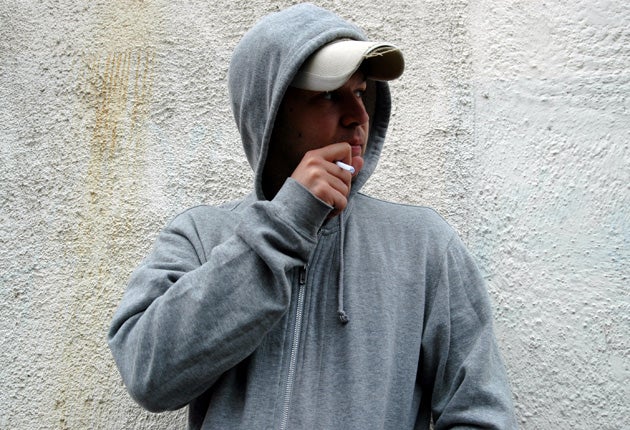Out with Asbos – and in with iPod seizures

Troublemakers could have their passports confiscated under an overhaul of the powers available to courts and police to tackle persistent anti-social behaviour.
Those responsible could also be stripped of prized possessions such as iPods by magistrates and be banned from parts of their home towns and cities. Police will also be forced to take action if they receive several complaints of hooliganism against an offender.
Theresa May, the Home Secretary, yesterday published details of the new Criminal Behaviour Order, the Coalition's replacement for Labour's widely criticised system of anti-social behaviour orders. She said Asbos were too bureaucratic and costly and did not tackle the root causes of offending. The growing numbers of people who breached their orders suggested they were no longer an effective deterrent.
The powers available to the authorities, including Asbos, will be superseded by five new orders and injunctions, typically banning offenders from designated areas or requiring them to stay out of trouble. They could also be instructed to take steps to improve their behaviour, such as attending drug rehabilitation programmes.
Ms May insisted the shake-up would result in swifter justice for victims, but charities condemned them as little more than a rebranding exercise. The proposals include allowing magistrates to ban offenders from taking holidays abroad as an incentive to comply with court orders to curb their unruly behaviour. They will also face losing status symbols such as electronic devices if they continue to offend – just as major criminals can have their assets seized.
James Brokenshire, the Crime Prevention minister, said: "We are looking at a range of issues that might have an impact on how people behave. Let's be clear – we're not talking about police being able to seize things in the community. This is about going to court, evidence being produced and what sanctions may be appropriate for the courts to consider. Obviously, if someone's passport is taken away then that could have an impact on their ability to travel."
In a consultation document on replacing Asbos, the Government also detailed plans for a "community trigger" after the ordeal of Fiona Pilkington, who killed herself and her disabled daughter Francecca in 2007 after being terrorised for years by youths outside their home in Leicestershire. Authorities would be forced to act if several people in a neighbourhood protested about persecution, yobbery or vandalism or if one victim complained three times without action being taken.
New crime-prevention injunctions, designed to nip bad behaviour in the bud before it escalates, would be easier to obtain because they would carry a civil, rather than criminal, burden of proof. Adults who breached them could be jailed, while under-18s would face curfews, supervision or detention.
Other proposals include community protection orders, which would give councils powers to stop graffiti, noisy neighbours or dog fouling. They could also be used for "more serious disorder and criminality", such as closing a property being used for drug deals. The Children's Society said the measures appeared to be "more of a rebranding exercise than anything else".
Bob Reitemeier, its chief executive, bemoaned "a missed opportunity to adopt a more effective approach for dealing with children and young people who are deemed to be anti-social".
Asbos versus Cbos
Asbos
Magistrates need proof beyond reasonable doubt against person named.
CBOs
Courts have to accept only on the "balance of probabilities" against person facing a Criminal Behaviour Order.
Asbos
Police and councils have no obligation to pursue an Asbo against an offender.
CBOs
Authorities will be forced to take action if five or more people complain or if one victim complains three times.
Asbos
Can be used only to prevent offending behaviour, not as a punishment.
CBOs
Possessions can be confiscated or passports seized for failure to comply.
Join our commenting forum
Join thought-provoking conversations, follow other Independent readers and see their replies
Comments
Bookmark popover
Removed from bookmarks